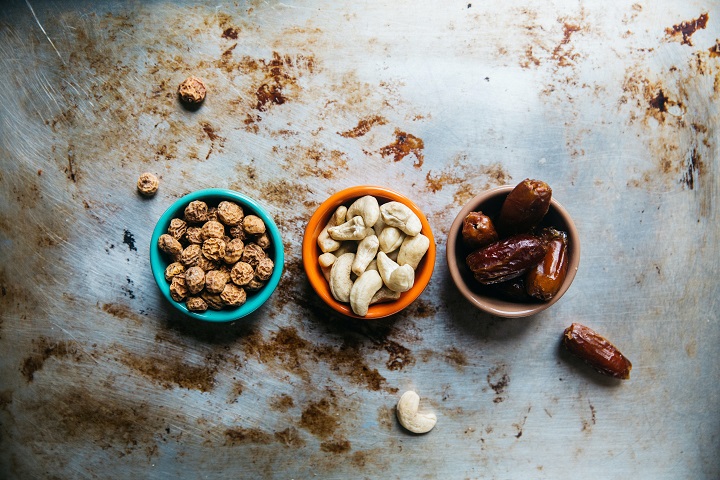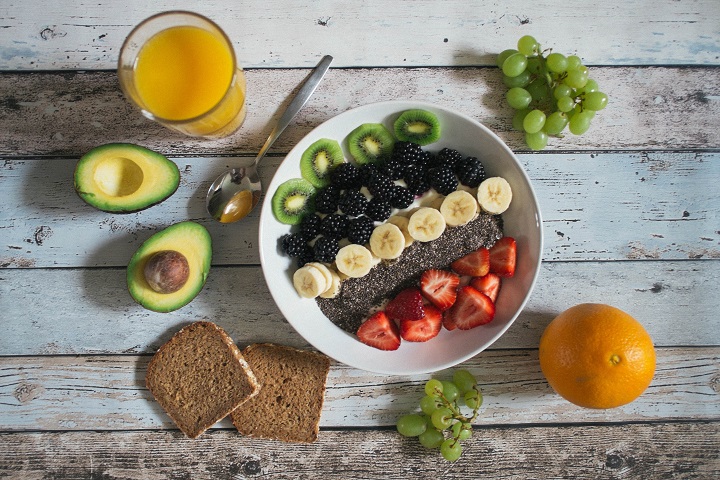Your diet is an essential part of your body’s health regime. Without the proper diet, it can be challenging to build muscle, lose weight, and even fight off infection, particularly when it comes to preventing infections such as those caused by Candida. Candida albicans is considered the most virulent pathogenic species in humans, as it is a type of yeast that exists in our bodies naturally but can begin to grow out of control if not managed effectively, causing painful and annoying yeast infections.
Many people need to realize that the foods we consume can help keep this yeast in check or fuel its overgrowth. This article will highlight the critical role of a well-balanced diet in controlling Candida yeast overgrowth and highlight some essential foods that can aid in this fight. When we better understand the importance of a well-balanced diet, we can more effectively manage Candida’s growth and encourage better overall health.
Table of Contents
1. The Importance Of Eating Right
Standard Candida yeast concentrations aid in digestion, promote overall health, and assist with nutrient absorption. However, as has been established, an excess of this yeast can cause infections, specifically candidiasis, a fungal infection. It can impact the lips, throat, skin, intestines, and genitalia. If you are experiencing any symptoms of a candida yeast infection, different over-the-counter solutions may help to target symptoms.
However, if you experience recurrent yeast infections, this may signal a more significant issue. Consult your doctor but also consider how dietary changes can be implemented to assist with infection-fighting in the long term.
Candida yeast thrives on sugar, which is a primary energy source for its growth and proliferation. Therefore, when you’re doing your weekly meal planning, it’s essential to focus on adding natural sugars to your diet rather than processed foods and lowering your overall sugar intake in general. If tailored correctly, your diet can help boost your immune system, promote gut health, and reduce fungal growth. The effects of these changes can improve your energy, and mood and lead to an overall improved lifestyle.
2. Foods To Add To Your Diet
A diverse and balanced diet forms a strong line of defense against Candida overgrowth, and that starts by introducing the right foods into your meal planning. Each of the items below are things you can pick up on your next trip to the grocery store and are easy to incorporate into your weekly meal planning, yet they can have significant impacts in preventing or fighting yeast infection.
a. Probiotic-rich Foods
Probiotics are a form of bacteria that helps maintain a healthy bacterial balance in your gut, preventing the overgrowth of candida and encouraging a strong digestive system. This bacteria is very important in assisting your body to ward off recurring yeast infections in that it enhances the body’s immune response, helping to address potential infection areas quicker and more effectively.

You can easily add many probiotic-rich foods to your grocery list, such as yogurt, kefir, kimchi, and sauerkraut. The most well-known of these as a yeast infection treatment option is yogurt, as it contains live probiotics, specifically Lactobacillus acidophilus, which can help diminish the overgrowth of Candida and lessen yeast infection symptoms. However, be sure only to use plain yogurt because, as mentioned, the sugar added to flavored yogurt can make yeast infections worse.
b. Garlic
Though it may not be the best-smelling plant in the world, garlic is known for its medicinal benefits. When you crush or chop garlic, it releases a compound called Allicin, which has strong antifungal properties, including against Candida. It disrupts the cell walls of the Candida yeast, effectively killing the fungi and balancing the microorganisms in your gut. Crushing or chopping garlic as a garnish to your meals can help add some beneficial Allicin to your diet. While raw garlic will provide you with the highest Allicin content, lightly cooked garlic will still provide you with some of the benefits.
c. Apple Cider Vinegar
Some stubborn yeast infections that don’t respond well to conventional treatment options can be treated effectively with apple cider vinegar. Traditionally, people will ingest apple cider vinegar to benefit from its antimicrobial and antifungal properties. However, some studies have also found that adding it to a lukewarm bathtub and soaking it for about 20 minutes can aid in eliminating any harmful microorganisms that come along with yeast, providing comfort from yeast infection symptoms.
d. Coconut Oil
The primary antifungal component in coconut oil is caprylic acid, a type of medium-chain fatty acid. Research indicates that caprylic acid can penetrate the cell membranes of Candida yeast, leading to the killing of the yeast cells and the preservation of beneficial cells.
e. Cruciferous Vegetables
Cruciferous vegetables like broccoli, brussels sprouts, and cabbage, among others, can be very beneficial for fighting and avoiding Candida yeast infection. These nutrient-dense vegetables are rich in glucosinolates, sulfur-containing compounds that transform into isothiocyanates and indoles when digested. These compounds, in turn, support the body’s natural detoxification processes, which can be beneficial in preventing and managing yeast infections.
Many people from around the world deal with painful and annoying Candida overgrowth and yeast infections, yet most don’t realize that what they eat can really have a strong impact. The nutrients and compounds we ingest can either help or hinder our body’s fight against infection, so it’s important to create your grocery list strategically.
Plan to pick up each of these items and incorporate them into your daily eating routine. Remember that while a solid diet goes a long way, it is essential to check in regularly with your doctor, especially if you are actively dealing with a yeast infection. Find out more about dealing with yeast infections from the Yeast Infection Advisor.
About The Author
Dan Jackowiak, NC, HHP, is the Founder of Yeast Infection Advisor. Dan is a Holistic Healthcare Practitioner and Nutritional Consultant who personally suffered from yeast and bad bacterial overgrowth of the gut for most of his life. The information on his website is a combination of his own nutrition and holistic training, life experiences, collaboration with fellow experts on his team, and over 20 years of studying medical research on candida yeast infections of all types, which has allowed him to take his life and health back and help others overcome yeast-related health problems and digestive problems of all kinds.

